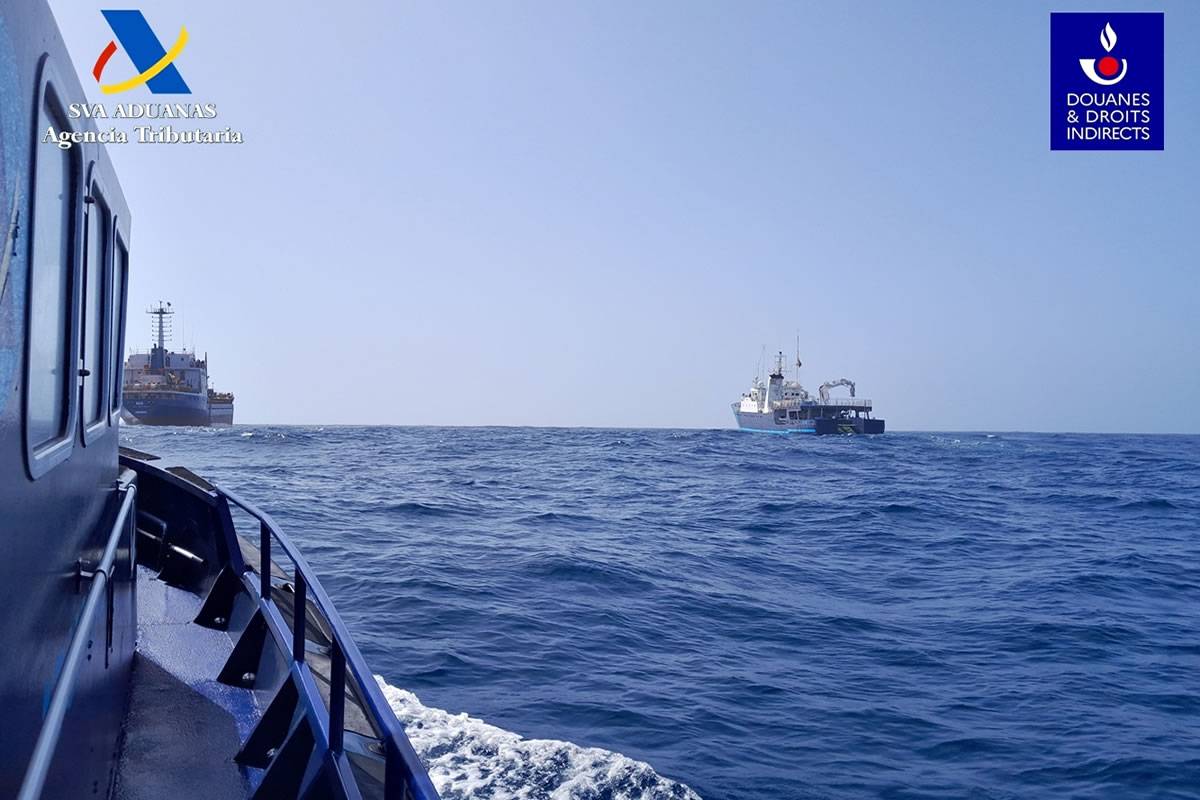Cargo ship intercepted with 4,000 kilos of cocaine northeast of the Canary Islands
- 05-10-2024
- National
- National Police
In a major anti-narcotics operation, Spanish and French authorities have intercepted a Tanzanian-flagged cargo ship carrying 4,000 kilograms of cocaine near the Canary Islands, with a street value of 400 million euros. The ship, named 'Ras,' was stopped 130 nautical miles northeast of Lanzarote as part of the joint operation 'Pascal-Lino 2024.' All ten crew members aboard were arrested.
The ship's suspicious route raised red flags among investigators. After departing from Turkey, it sailed through the Mediterranean without loading or unloading any cargo, eventually reaching the Atlantic and navigating erratically around Sierra Leone and Guinea-Bissau before heading toward Spain and Portugal, passing the Canary Islands.
The operation, coordinated by Spain’s Customs Surveillance Service and France’s customs, involved naval and aerial surveillance. The cargo ship had been monitored by the Maritime Analysis and Operations Centre for Narcotics (MAOC-N) based in Lisbon, and at the national level, the mission was overseen by Spain’s National Police and Guardia Civil.
A Special Operations Vessel, the 'Petrel,' together with the French patrol boat 'DPF-3,' successfully boarded the 'Ras.' Authorities discovered the cocaine hidden in a difficult-to-reach compartment between the ship’s holds, indicating a sophisticated concealment effort.
The eight crew members, five of Turkish nationality (including the captain), two from Azerbaijan, and one from the Netherlands, were all arrested, and the ship was escorted to Arrecife (Lanzarote) where the drugs will be unloaded, and the detainees will face judicial proceedings.

The operation is part of the broader 'Pascal-Lino' and 'Pascal-Iborra' campaigns, bilateral efforts between Spain and France to combat maritime drug trafficking. These annual campaigns strengthen collaboration through shared protocols, crew exchanges, and the deployment of advanced naval and aerial resources, targeting illicit maritime activities across the Mediterranean, Cantabrian Sea, and North Atlantic.
Other articles that may interest you...
Trending
Most Read Articles
Featured Videos
TributoFest: Michael Buble promo 14.02.2026
- 30-01-2026
TEAs 2025 Highlights
- 17-11-2025



























































